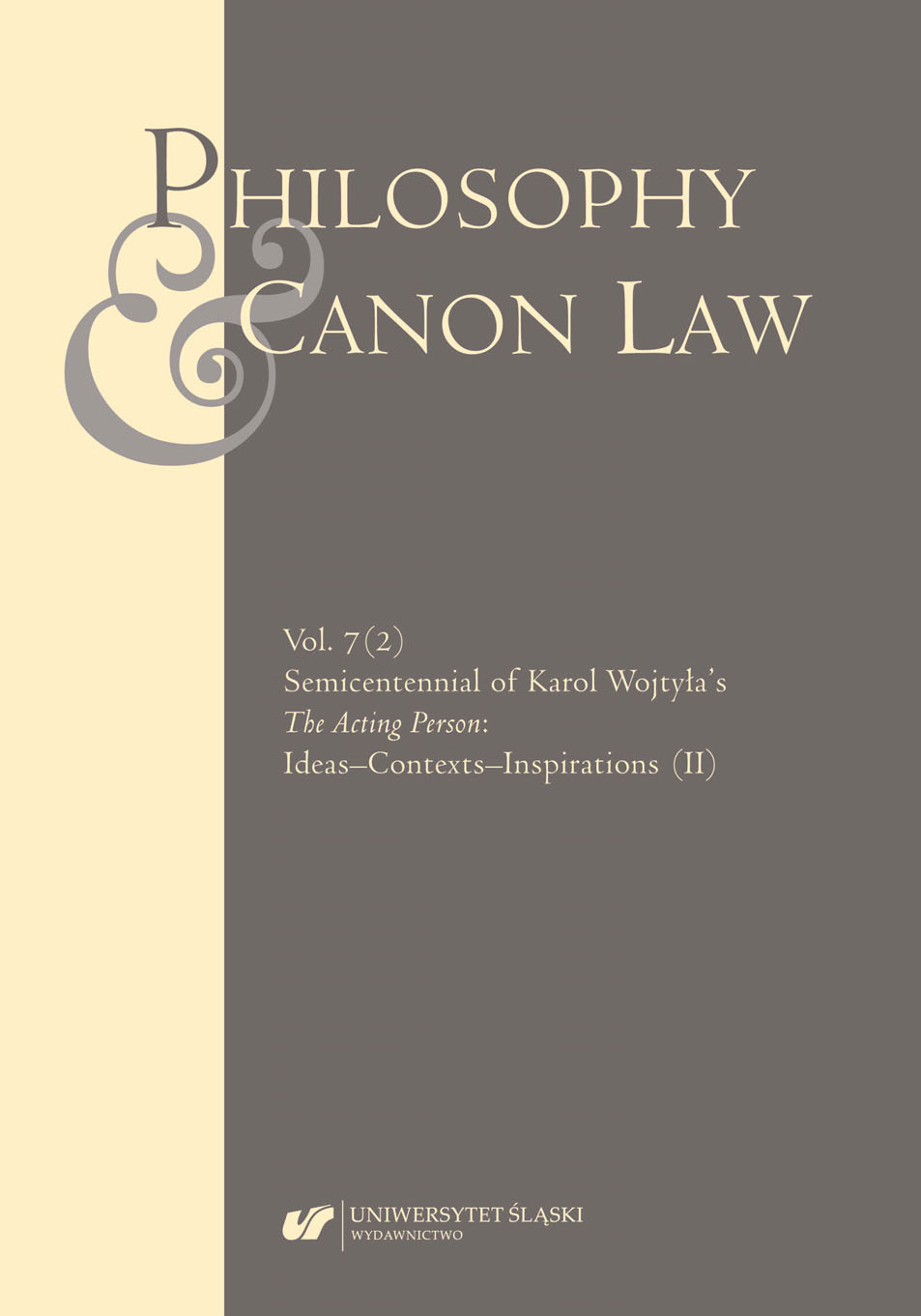On Karol Wojtyła’s Aristotelian Method. Part II. Induction and Reduction as Aristotelian Induction (ἐπαγωγή) and Division (διαίρεσις)
On Karol Wojtyła’s Aristotelian Method. Part II. Induction and Reduction as Aristotelian Induction (ἐπαγωγή) and Division (διαίρεσις)
Author(s): Daniel C. WagnerSubject(s): Theology and Religion
Published by: Wydawnictwo Uniwersytetu Śląskiego
Keywords: Karol Wojtyła; method; induction; reduction; Aristotle; definition; division; person; act;philosophical anthropology;
Summary/Abstract: This is the second of a two-part study treating Karol Wojtyła’s Aristotelian methodology. Having presented Aristotle’s method of induction (ἐπαγωγή/epagoge) and analysis (ἀνάλῠσις/analusis) or division (διαίρεσις/diairesis) in Part I, Part II discloses the logical form and force of Wojtyła’s method of induction and reduction as Aristotelian induction and division. Looking primarily to the introduction to The Acting Person, it is shown that Wojtyła utilizes the logical forms of reductio ad impossibile and reasoning on the hypothesis of the end, or effect-cause reasoning, which is special to the life sciences and the power-object model of definition as set down by Aristotle. By use of this Aristotelian methodology, Wojtyła obtains definitive knowledge of the human person that is necessary and undeniable: he discloses the εἶδος (eidos) or species of the person in the Aristotelian, Thomistic, and Phenomenological sense of the term.
Journal: Philosophy and Canon Law
- Issue Year: 2/2021
- Issue No: 7
- Page Range: 1-27
- Page Count: 27
- Language: English

